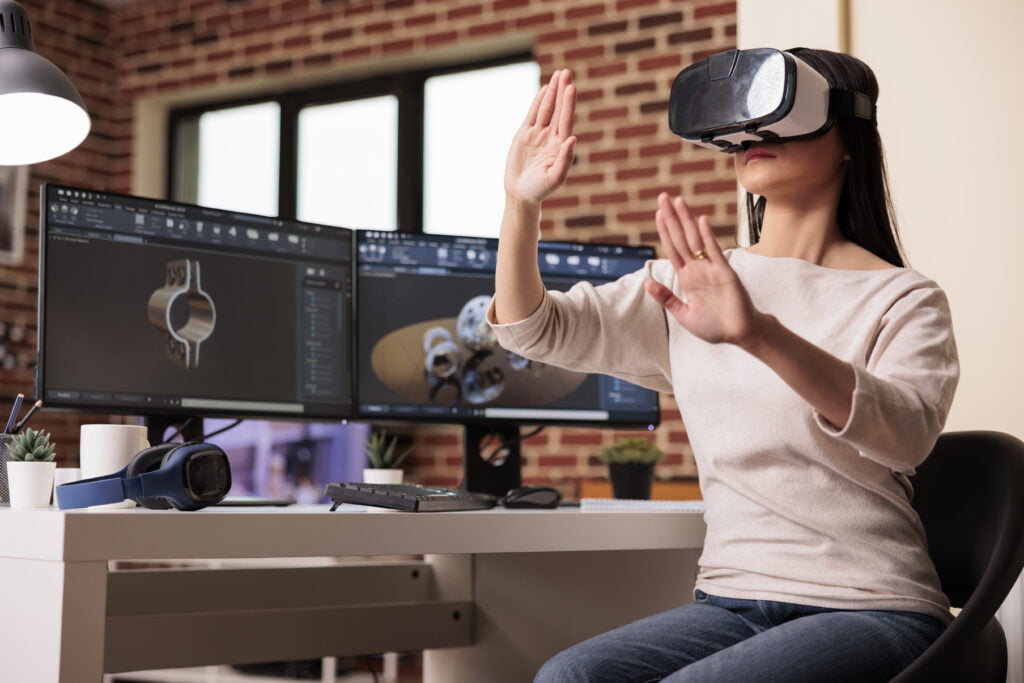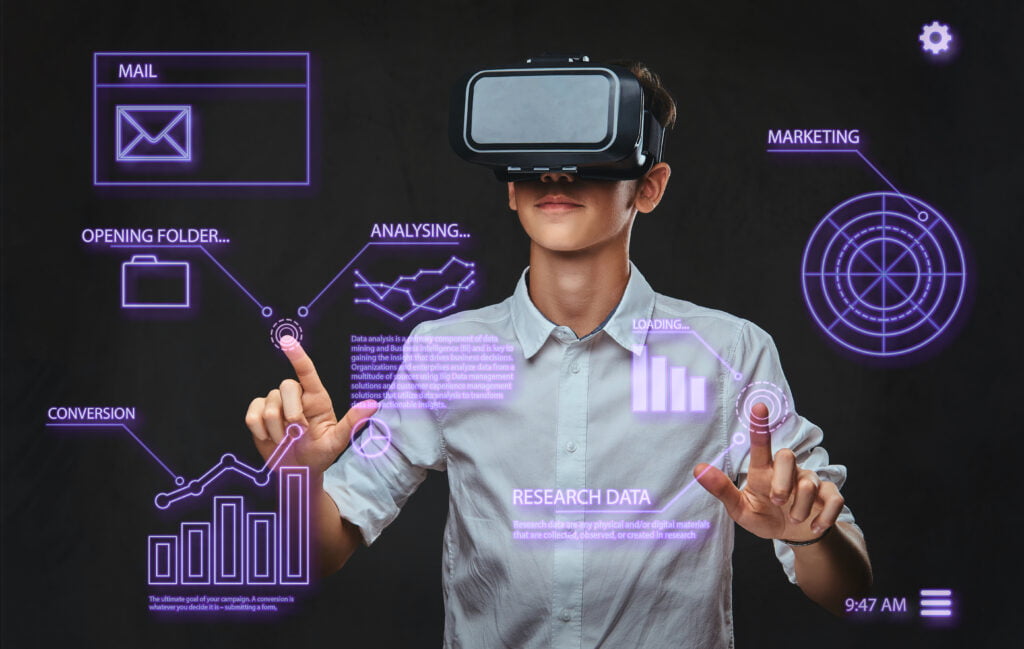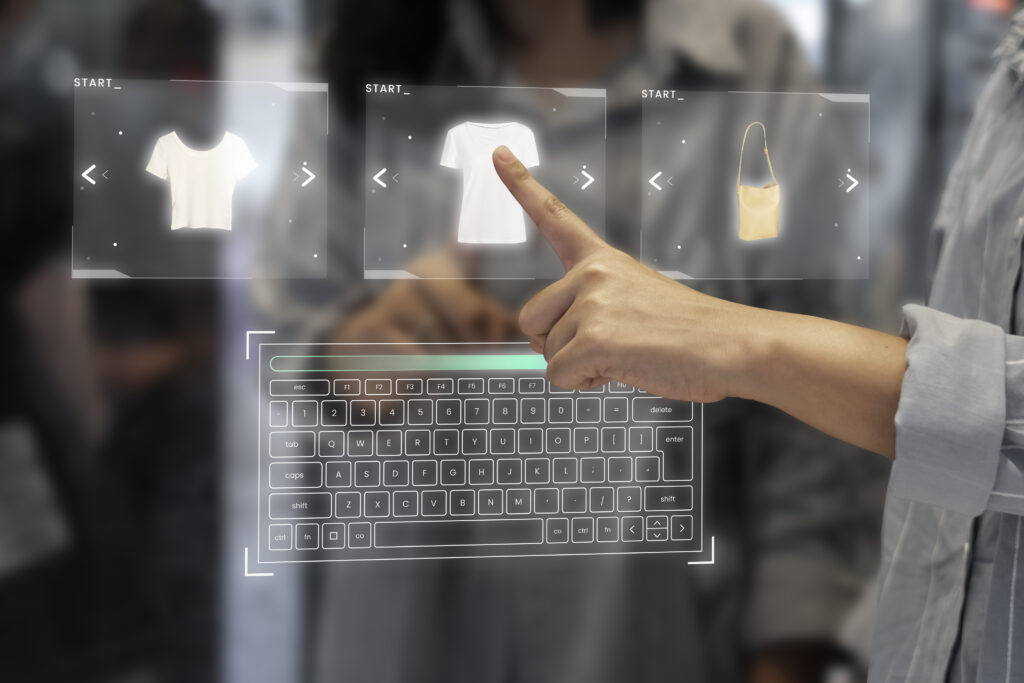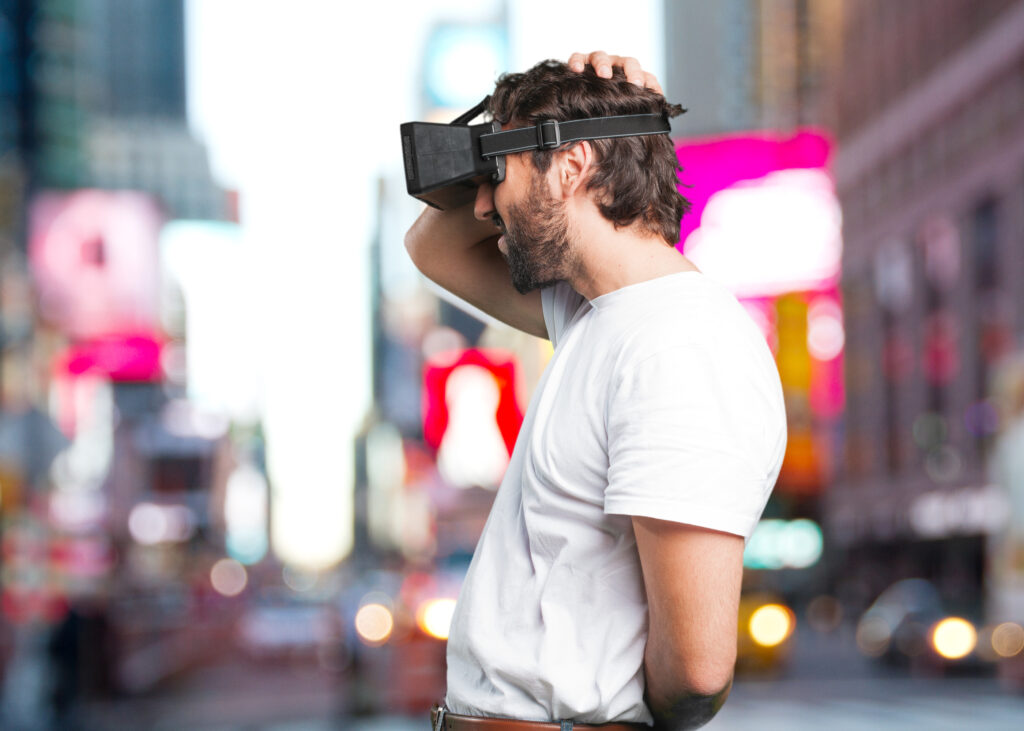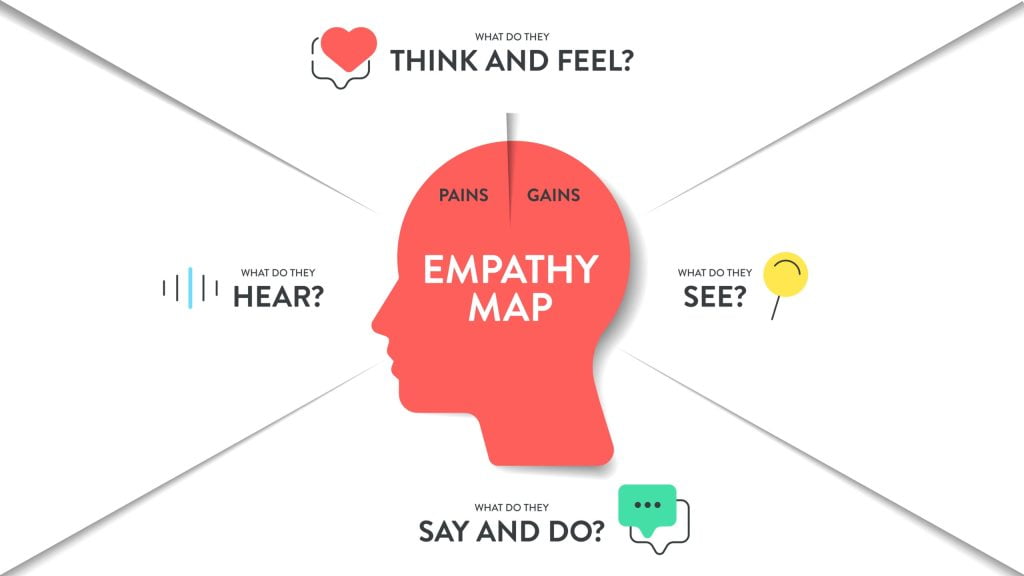The Metaverse and Education
Table of Contents:
Education is always changing, as was seen during the Covid19 pandemic, when a huge shift to online learning took place. This affected the education of 91% of students worldwide according to Unicef, but most institutions weren’t ready for the shift, and some teachers found it hard to fully engage learners with a flat screen over Zoom. If they’d had a tool at their disposal for bringing their students into an immersive world where they could teach in new and exciting ways, it might have been much easier for them to motivate and inspire them. With the metaverse, such a tool might have been available at their fingertips, and in the near future, it could be. In this article, we will look at some of the early metaverse innovations in the realm of education and consider some of the positives and negatives that could come with them.
Studying the metaverse
With investment in the metaverse on the rise, schools are now beginning to develop metaverse courses for the very first time. In fact, the University of Pennsylvania’s Wharton School is due to launch its Business in the Metaverse Economy course in September 2022. It will be the first of its kind to be run by an Ivy League business school, with digital technology specialists Prysm Group helping to build and deliver the 6-week course. It is aimed at business professionals working in the tech industry and hopes to give them a more realistic picture of the metaverse than the one that is currently being painted online, with a focus on quality guidance on how to take advantage of the metaverse for business as it develops. It will cover topics such as cryptocurrencies, NFTs, blockchain, AR and VR (see previous Mazer posts on these topics) through a mixture of lectures and practical metaverse experiences. It will also show the participants how to market in the metaverse, as well as looking at the consumer experience and metaverse-based business models. It is yet to be seen how successful this course will be, but regardless, the demand for metaverse courses for business is sure to grow.
Metaversities
Learning about the metaverse is one thing but learning in the metaverse is a whole different step in the development of virtual education. However, it may not be too far away as, in 2021, while other schools were struggling to get to grips with teaching online, Morehouse College trialled the first Metaversity along with help from VR education company VictoryXR. The aim of the project was to test out the technique to show proof of concept. The students were provided with VR headsets for the duration of the trial, which they could use to access a digital twin of the Morehouse campus. During the course, they were taken through a series of amazing VR learning experiences. In one, they were astronauts performing tasks in space, and in another they went on a field trip through the human body to learn about anatomy. They also entered a virtual laboratory where they could conduct chemistry experiments without the need for protective equipment before finally travelling back in time to witness a battle from the 18th century. There were also more traditional classroom interactions, but they took place in relaxing virtual environments rather than a stuffy classroom.
As you can see, a wide variety of experiences were tested, and it seems that all were well received. They gathered feedback from the students and also monitored their performance compared to other forms of learning. The metaverse lessons were significantly more popular than those in the classroom, and the students’ scores were higher too. Those studying World History saw a 10% increase in their averages overall, and much better results were achieved by the those studying Chemistry in VR as well. The teachers believed that this was due to the fact that the learners were able to dive deeper into the topic, truly experiencing the subject matter as they learnt about it. Overall, engagement, satisfaction, and grades all increased. Off the back of this success, Meta has begun to work with VictoryXR, the two pairing up to bring metaversities to nine more campuses across the US – a huge win for metaverse solutions for education.
Unlock the future with Mazer: Your innovation partner.
Benefits of the metaverse for education
It is clear from the Morehouse College trial that the metaverse could have huge benefits for education. Firstly, it will appeal to Generation Z and those who come after as they are more closely connected with online and virtual reality innovations. In fact, a 2021 study by The New Consumer found that 45% of Generation Z individuals feel most comfortable in an online environment. Unlike older generations, they have grown up around these technologies and feel completely relaxed using them in their everyday lives. Virtual environments are also more engaging, not only to Gen Z, but to other learners too. The metaverse allows subjects to be brought to life in much more vivid ways than has previously been possible in books or on film. Essentially, the limitations of the traditional classroom are no longer there – you have the potential to create all sorts of different workspaces and experiences beyond what you can achieve in one room. You can do experiments in a virtual laboratory without having to buy all the expensive equipment, practice repairing a car in a virtual garage without the mess of oil and dirt, dissect animals without having to use real specimens, experience events from history, travel to distant parts of the world without leaving your school, or perform complex medical operations without hurting anyone. And these are just some of the possibilities.
All of these environments are far more immersive and able to stimulate more of the senses than older methods. They also allow active engagement with the learning content, which improves understanding and retention. Such engagement can expand to gamification, whereby students collaborate to complete video game style tasks throughout the lesson, making it more like a quest or adventure than a learning experience. It is not hard to see how this could be far more appealing to learners, particularly younger ones.
Another benefit of metaverse solutions for education is the ability to overcome the isolation students feel when learning through a computer screen. With online learning becoming more widespread during and since the pandemic, some students have struggled with just seeing faces on the screen and not being able to read people’s body language or feel like they are physically with people. Younger children also failed to learn the usual social cues. As more and more realistic avatars can be created, rather than the cartoon-like ones that currently exist in some metaverse platforms, people will be more and more able to exhibit realistic gestures and expressions in virtual reality settings. This will encourage students to interact in more realistic ways and feel more connected to their peers as they do so.
At XR Wizards, there is a focus on developing realistic avatars such as this to make the metaverse feel more like the real world and also for it to be a more practical place. To this end, their avatars have a full body, and are able to maintain natural eye contact and even express emotions clearly. Lip-sync also works based on real-time voice recognition to make it appear as real as possible. As well as realistic avatars, they are able to create complex virtual objects that can be interacted with by many users at the same time. This could potentially facilitate dynamic learning experiences where students work together on the same item or task in an exciting virtual space. This kind of technology will also allow educational institutions to introduce students to potentially dangerous practical tasks much earlier in their learning journey as objects can be manipulated without fear of injury.
As well as all these practical concerns, the metaverse for education could also make the whole industry more equal worldwide and give more opportunities to isolated communities or disabled learners. Although the initial costs might be expensive, once a school has some headsets, they can provide their students with experiences like going on trips to foreign countries without the costs of travel or accommodation, and without any health and safety concerns. Classes could even go on ‘foreign exchanges’ where they could meet students from other countries in the metaverse without ever having to go there.
Tech is also being developed to help disabled students to enter the metaverse. With the help of assistive devices such as modified keyboards or controllers which can be worked with the feet or mouth, these students could go into the virtual world in the same way as able-bodied students, helping to break down barriers between the two. In fact, the metaverse will be better able to cater to all sorts of differing needs. Experiences can be created that each individual can work through in their own way at their own pace. This will make learning much more personalized, giving the learner more control over how they study, while making the teacher more of a facilitator in the process.
Issues of the metaverse for education
The benefits of the metaverse for education seem numerous. However, there will of course be challenges along the way. One obvious example is infrastructure. Internet speeds and capabilities will need to be increased around the world to allow widespread access to the technology, but with 5G being rolled out in new places every day, it is only a matter of time before this is no longer an issue. Bigger problems are those related to privacy and data protection. With Meta getting involved in a lot of the early developments in the metaverse, people are understandably concerned about their data being collected and sold. As mentioned in some previous Mazer blog posts, VR headsets can collect all sorts of biometric data, so people will need to be reassured that this will be kept secret and safe before they feel fully comfortable using the technology. VictoryXR have been careful with their metaversities, adding an option for students to opt out of data collection, but stricter controls might be needed in the future.
As well as these concerns, the skill of teaching in the metaverse will need to be developed. Teachers are always being presented with new ways of educating people, and it can be hard to keep up in the fast-paced digital world. Training will have to be developed to make metaverse teaching easy for those already working in the industry as well as younger teachers coming through. Students too will need to be shown how to use metaverse learning tools correctly and safely, with cyber bullying being a particular worry. Addiction is also a possibility, as we have seen with the allure of online games, which some children just can’t drag themselves away from. The virtual environment can be quite seductive, and it will be important to regulate the time spent within it to make sure that students get a good amount of time learning in the real world too. It is likely that metaverse learning will be part of the picture, although with metaversities on the horizon, students could also be offered the chance to learn entirely in the metaverse. With no idea of how this might affect the developing brain over the long term, there will need to be a lot of research in this area before we can be sure that it will be safe for students to spend extended amounts of time within the virtual world.
Finally, although it could make education more equal, it also has the potential to polarize people further if not done correctly. If the tech is too expensive, only wealthy schools will be able to use it. On the other side of the coin, if it becomes very cheap, maybe the traditional classroom will become rare and sought after, with only the richest students able to afford it. The metaverse for education has the ability to provide more access or restrict it, so it is important that developers get this right so that it doesn’t become another way to divide people.
Final thoughts
Metaverse technologies are only in their early stages, but we can already see the potential they have to change the world of education for both the better and the worse. The positives are many, and it’s entirely possible that most classrooms will make use of metaverse learning experiences in the future, but whether or not people will be attending metaversities where all of their education is virtual is yet to be seen. It’s more likely that the metaverse will be used within a blended learning environment, enhancing the learning that is currently offered and hopefully bringing higher quality education to a larger number of people around the world.
Read also: How VR And AR Technology Can Eliminate Distraction From Education
What is the role of the metaverse in education?
The metaverse is being explored as a tool to revolutionize education. Schools are developing metaverse courses, and universities are offering courses on the metaverse economy. Virtual reality (VR) learning experiences and “metaversities” are also being tested to engage students.
What benefits does the metaverse offer for education?
The metaverse offers numerous benefits for education, including increased engagement, immersive learning experiences, personalized learning, and the ability to overcome geographical and physical limitations. It can also appeal to Generation Z, who are comfortable in online environments.
What are the challenges and concerns associated with metaverse-based education?
Challenges include infrastructure requirements, data privacy and protection concerns, the need for teacher and student training, potential issues with addiction, and the possibility of creating educational disparities based on access to metaverse technology.
Unlock the future with Mazer: Your innovation partner.
Author: Rafał Siejca
Rafal has over twenty years of corporate experience, including roles at Millennium Bank, Comarch, and leading software teams at PZU, one of Europe’s largest insurance companies.As one of Poland’s few true VR experts with a decade of experience, he ensures timely, high-quality project delivery as CEO and CTO.


